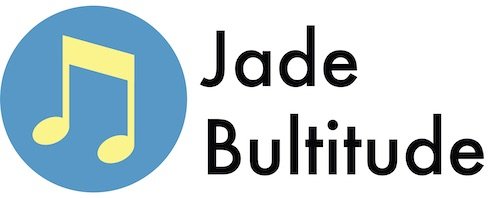The E flat harmonic Minor scale is a diatonic scale starting and ending on an Eb. Harmonic Minor scales were created mainly to help with chords, but they do appear in melodies too. The scale appears in a wide variety of music, from Mozart to Katy Perry, to neo-classical metal.
The notes of the E flat Harmonic Minor Scale are:
Eb, F, Gb, Ab, Bb, Cb, D, Eb

E flat Harmonic Minor Intervals
The harmonic minor scale is the same as the natural minor, except for a raised 7th degree by a semitone. In terms of intervals, this changes the major 2nd interval between 6th and 7th notes to an augmented 2nd.
You can see the intervals in the Eb Harmonic Minor scale below. It’s worth remembering that these intervals will be the same for all harmonic minor scales.
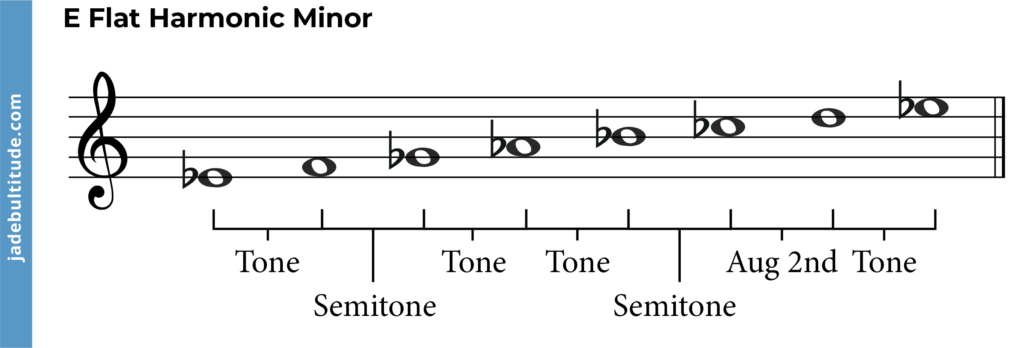
The Harmonic Minor Formula
The harmonic minor scale is based on the natural minor scale but with a sharpened 7th degree. The tone and semitone pattern of the scale is shown below.

Degrees of the E flat Harmonic Minor Scale
- 1st degree – Eb
- 2nd degree – F
- 3rd degree – Gb
- 4th degree – Ab
- 5th degree – Bb
- 6th degree – Cb
- 7th degree – D
E flat Harmonic Minor Modes
The natural minor scale is the same as the Aeolian mode, so this means that if we raise the 7th of the Aeolian we will get the harmonic minor scale. This is written as Aeolian #7. The great thing about the modes is that they all link together, A Aeolian has the same notes as B Locrian, except that B Locrian starts on a B. And C Ionian has the same notes too, except it starts and ends on a C. If the is news to you, check out our guide to modes for more detail.
As the modes link together we can create modes for Eb Harmonic Minor using this approach. The mode names and notes are set out below.
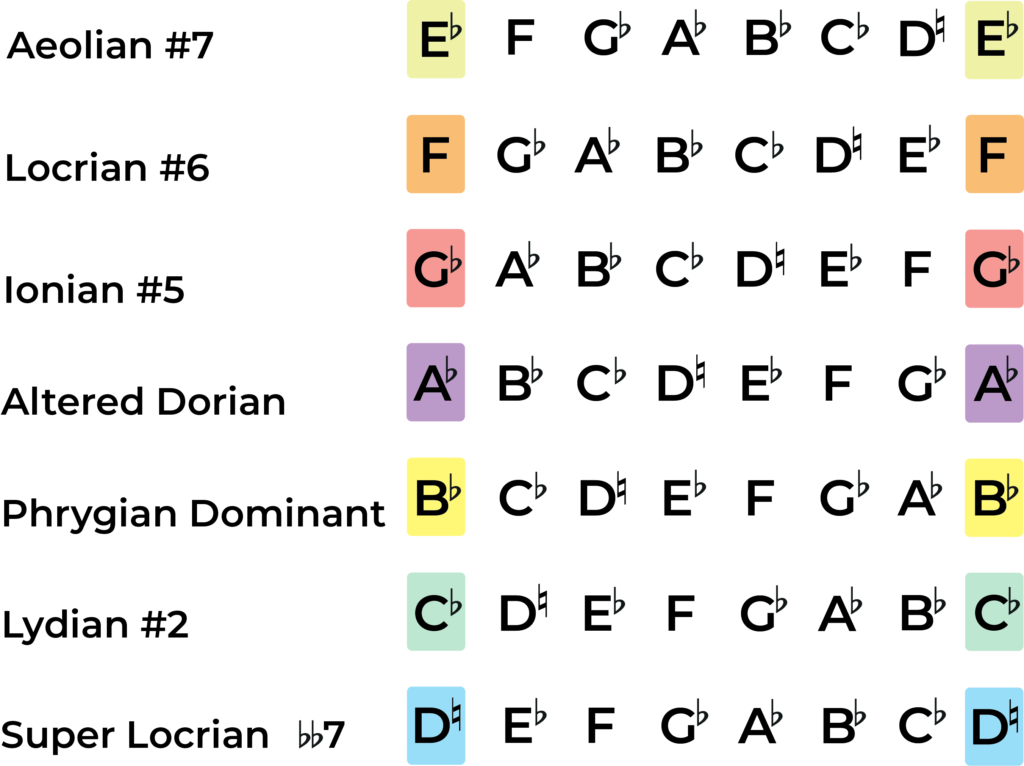
Play E flat Harmonic Minor on Piano
You can use the diagram below to play the Eb harmonic minor scale with the right hand.
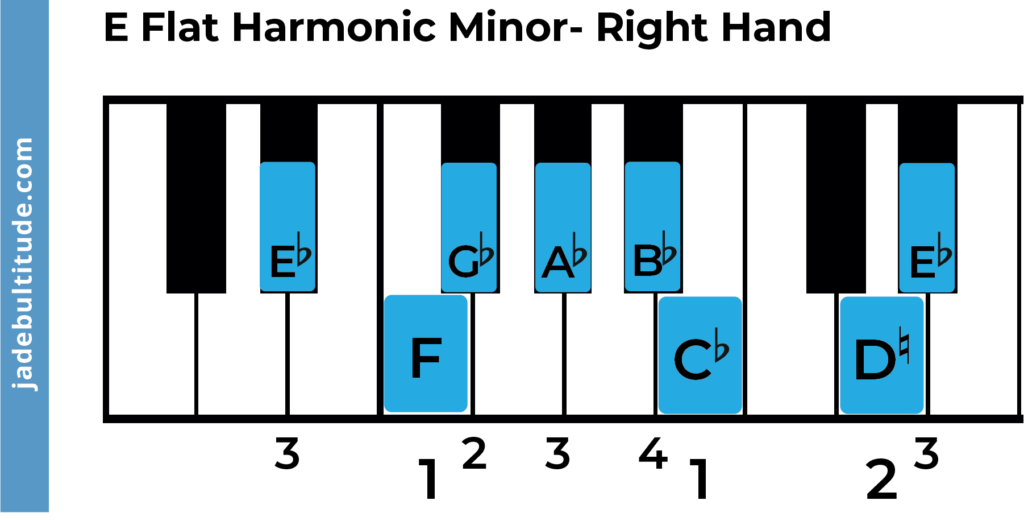
Here is the diagram for the left hand.
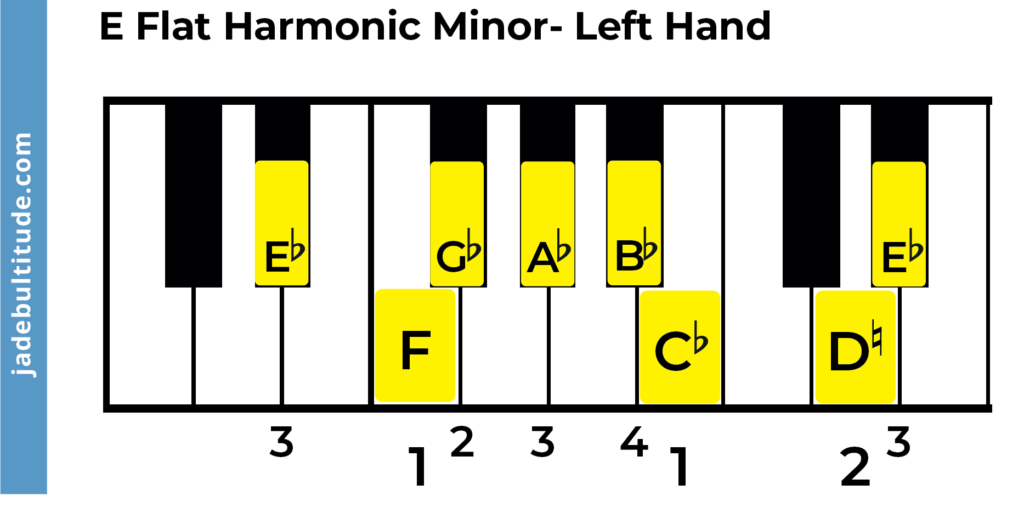
Play E flat Harmonic Minor on Guitar
The harmonic minor scale can be played in several position on the guitar. Here is the standard position starting on an Eb. This shape can be moved up and down the neck to play different harmonic minor scales.
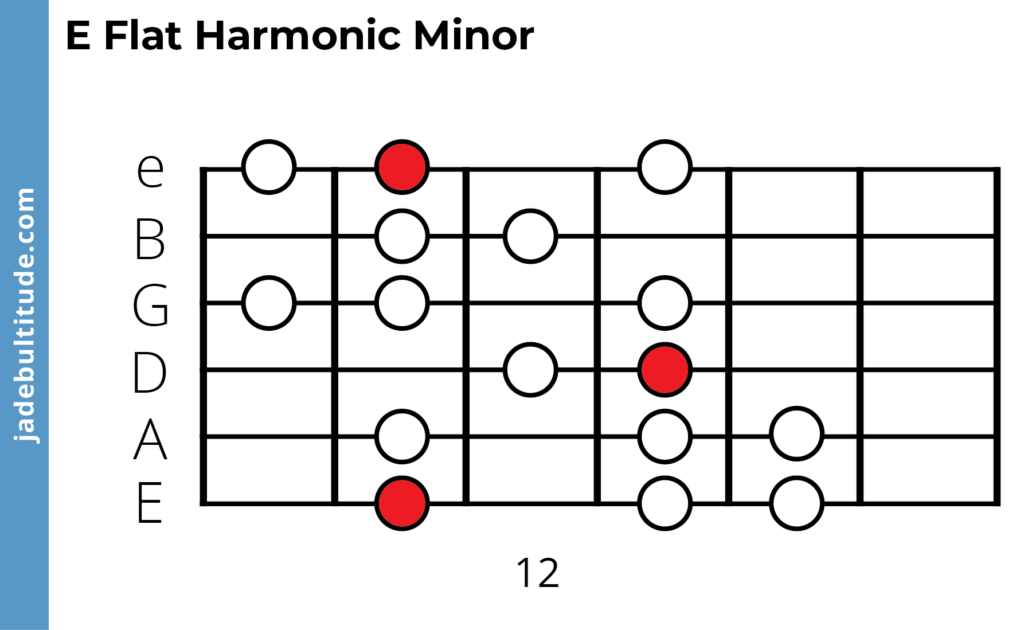
The Key Signature of E flat Harmonic Minor
The harmonic minor scale is usually played in pieces in a minor key. This means that if we are playing Eb Harmonic Minor, our piece will be in the key of Eb (natural) Minor. As Eb minor is the relative minor of Gb major, it has a key signature with six flats.
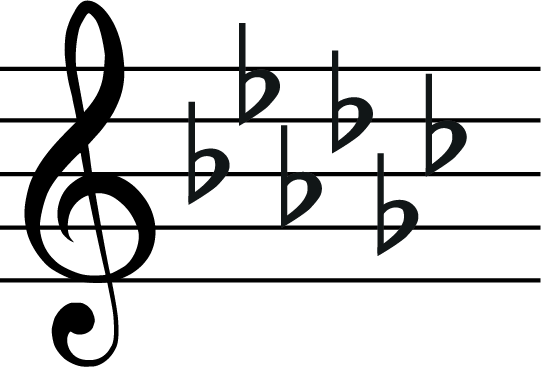
E flat Harmonic Minor in Treble Clef
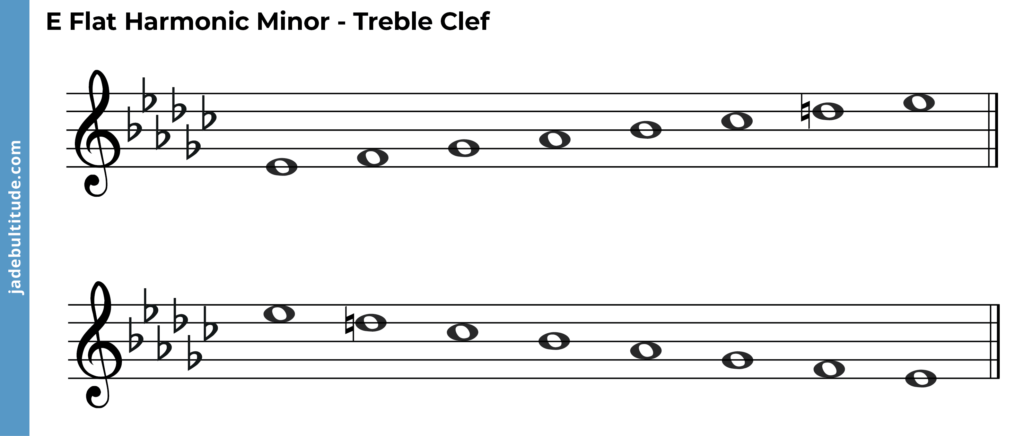
E flat Harmonic Minor in Bass Clef
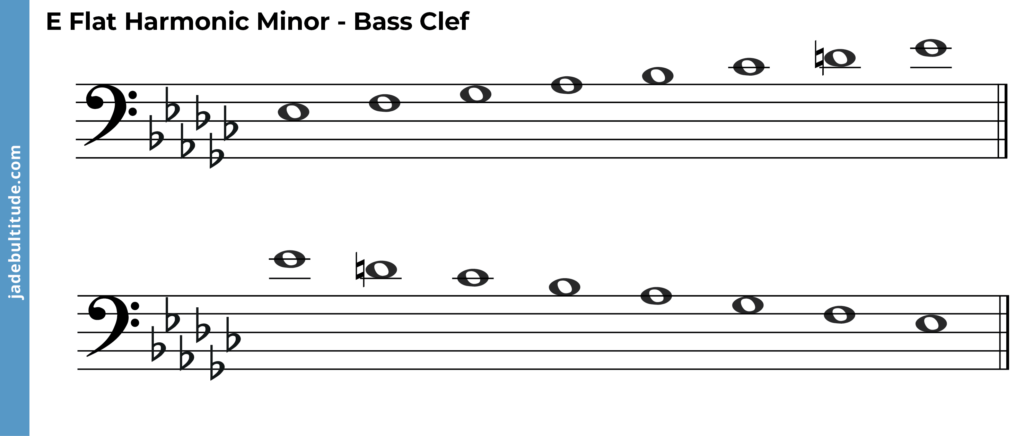
E flat Harmonic Minor in Alto Clef
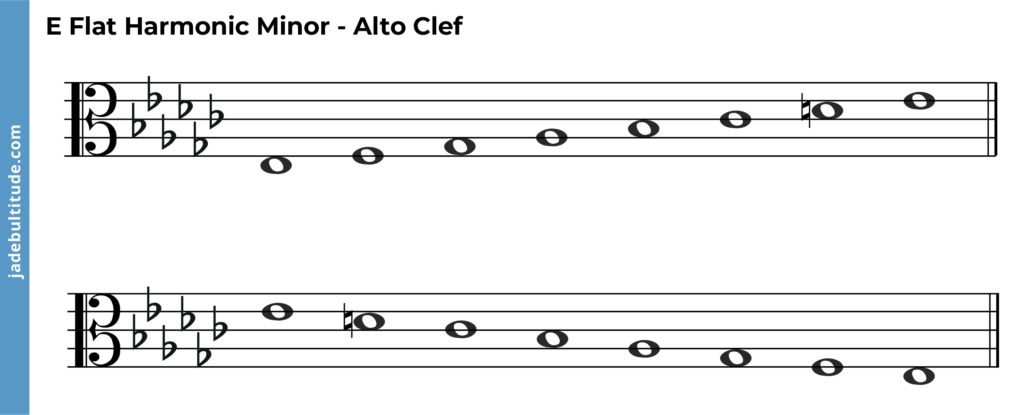
E flat Harmonic Minor in Tenor Clef
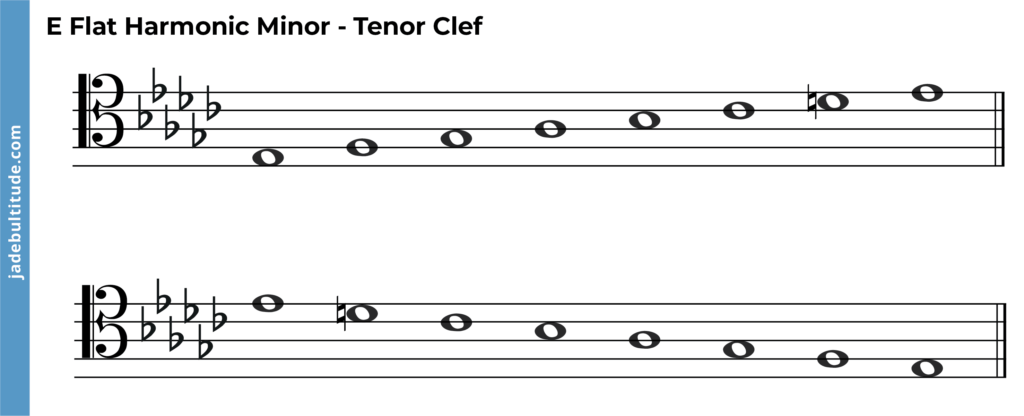
The Chords in E flat Harmonic Minor
Chords can be constructed from the notes of Eb harmonic minor scale. Learn more about this in our post on Eb harmonic minor chords.
Enharmonic Equivalent Scales
Eb Harmonic Minor and D# Harmonic Minor are enharmonic equivalent scales. This means that they share all the same notes, but just written using enharmonic equivalent notes. You can see this below in the image of both scales.
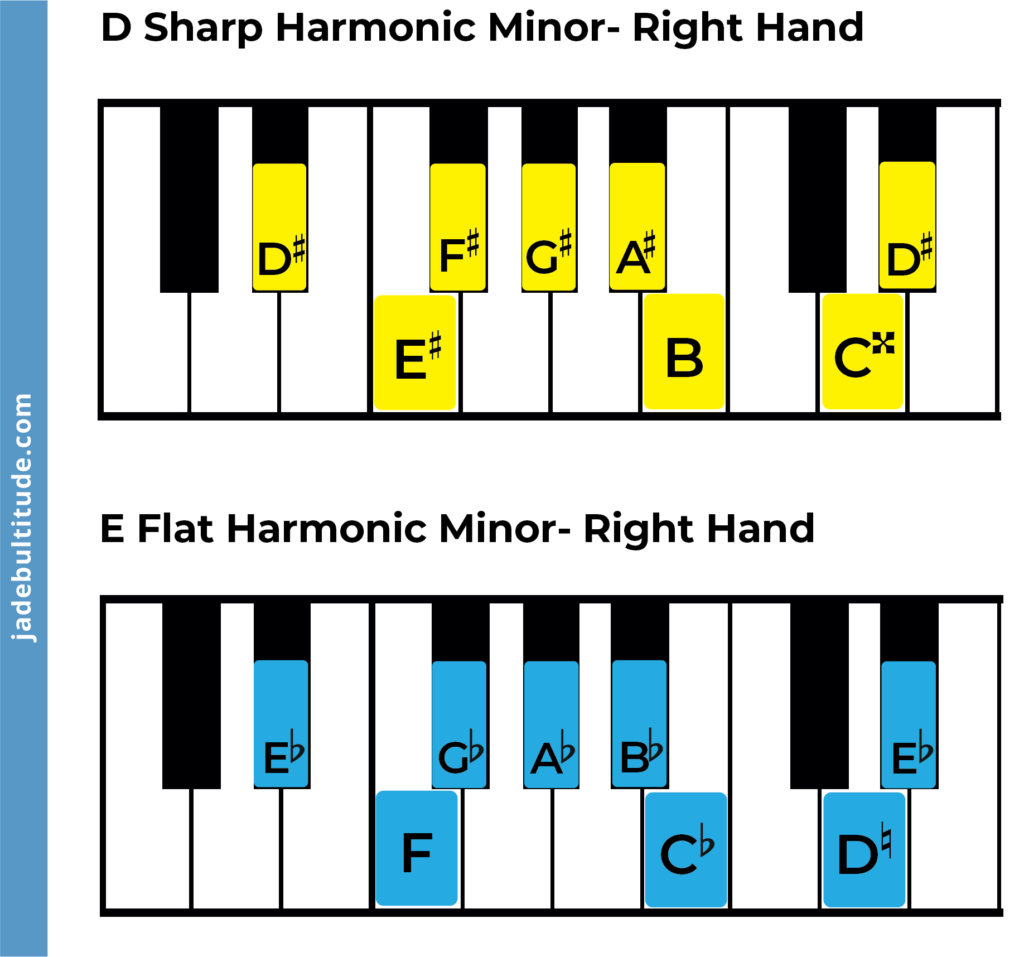
For example, the note D natural is in E Flat Harmonic Minor and the note C double sharp is in Eb Minor. Both these notes are enharmonic equivalents, meaning they sound the same. Learn more about the D Sharp Harmonic Minor Scale here.
What’s next…?
- Learn more about scale with our guide to the three minor scales.
